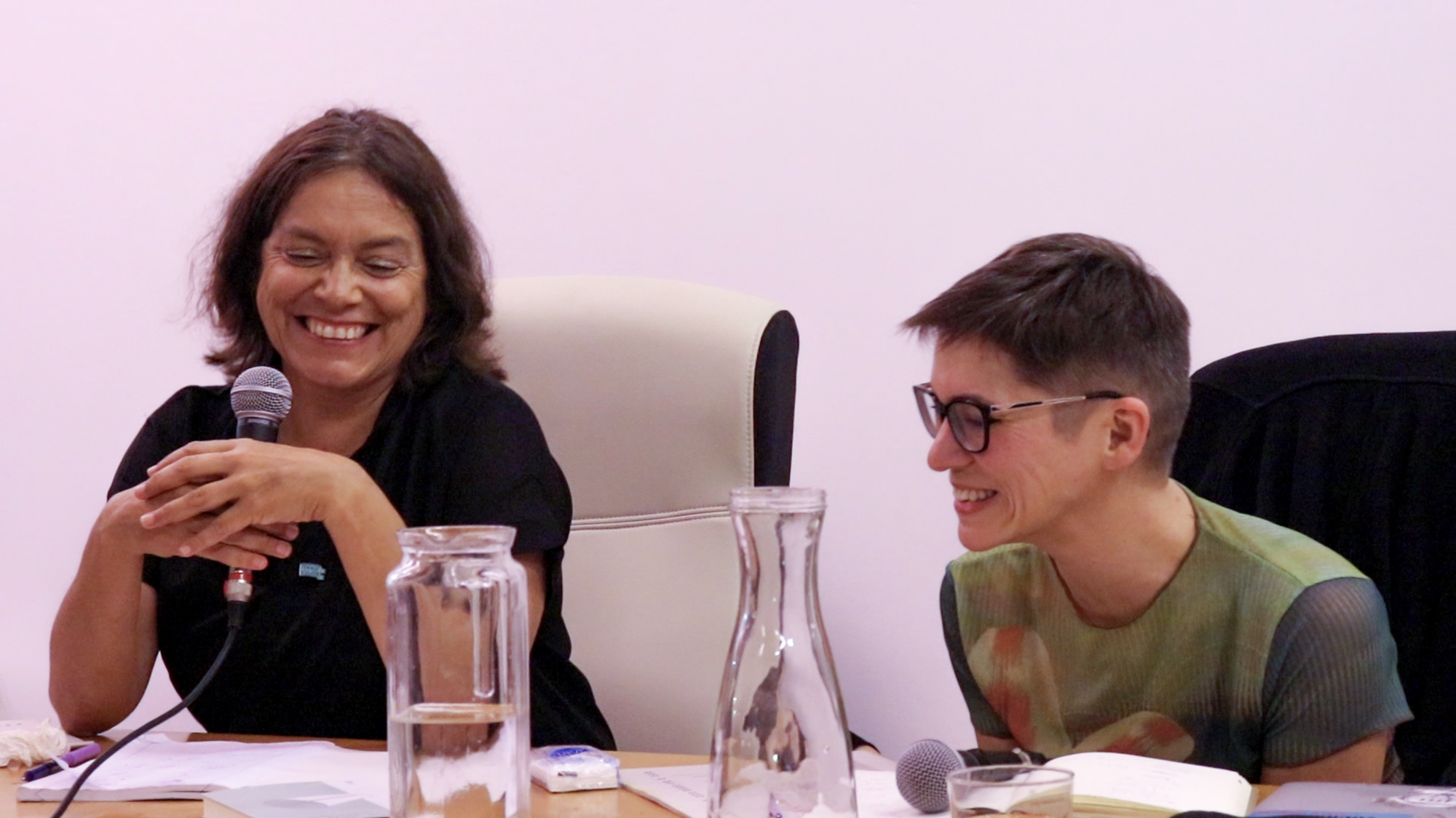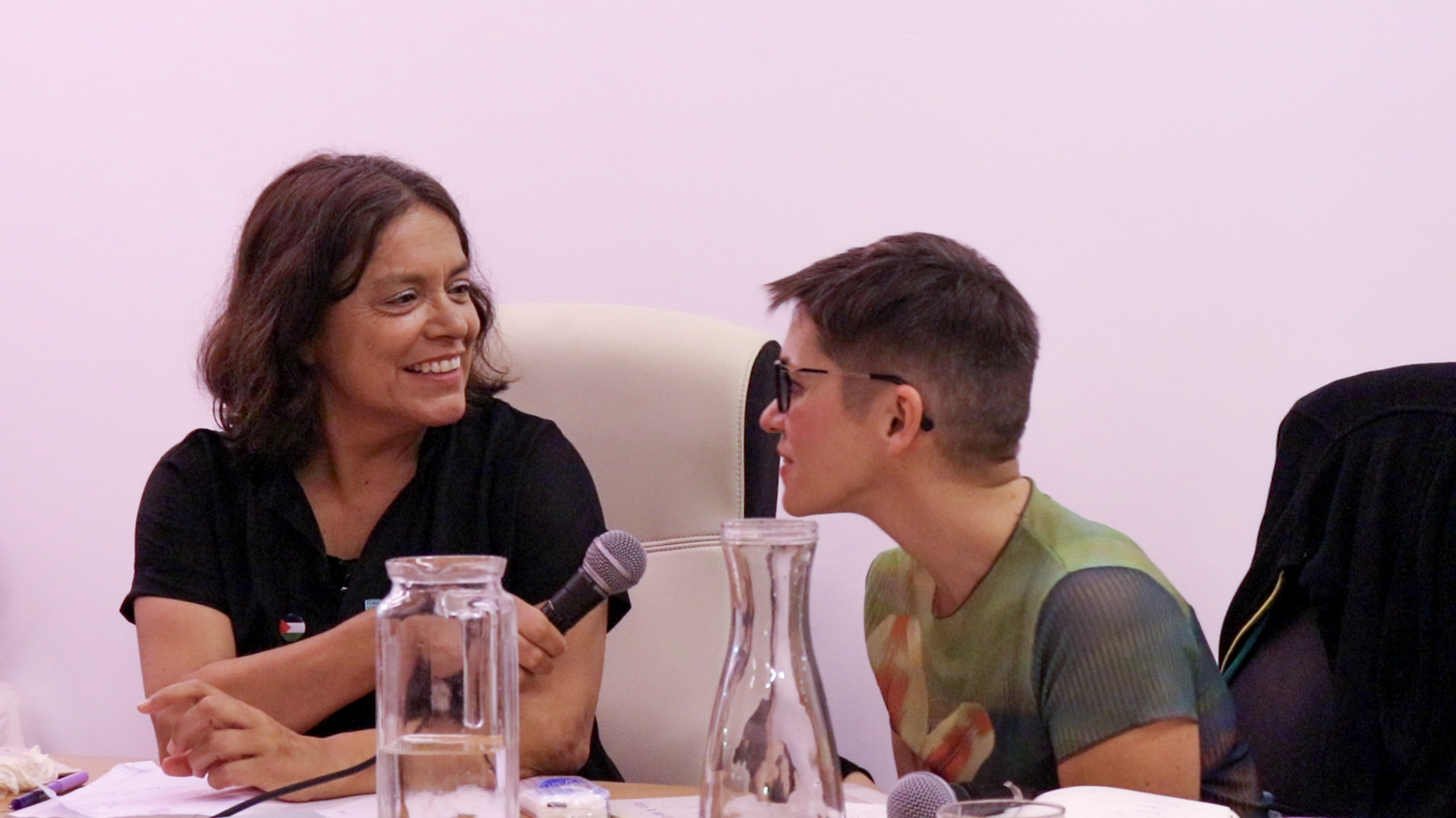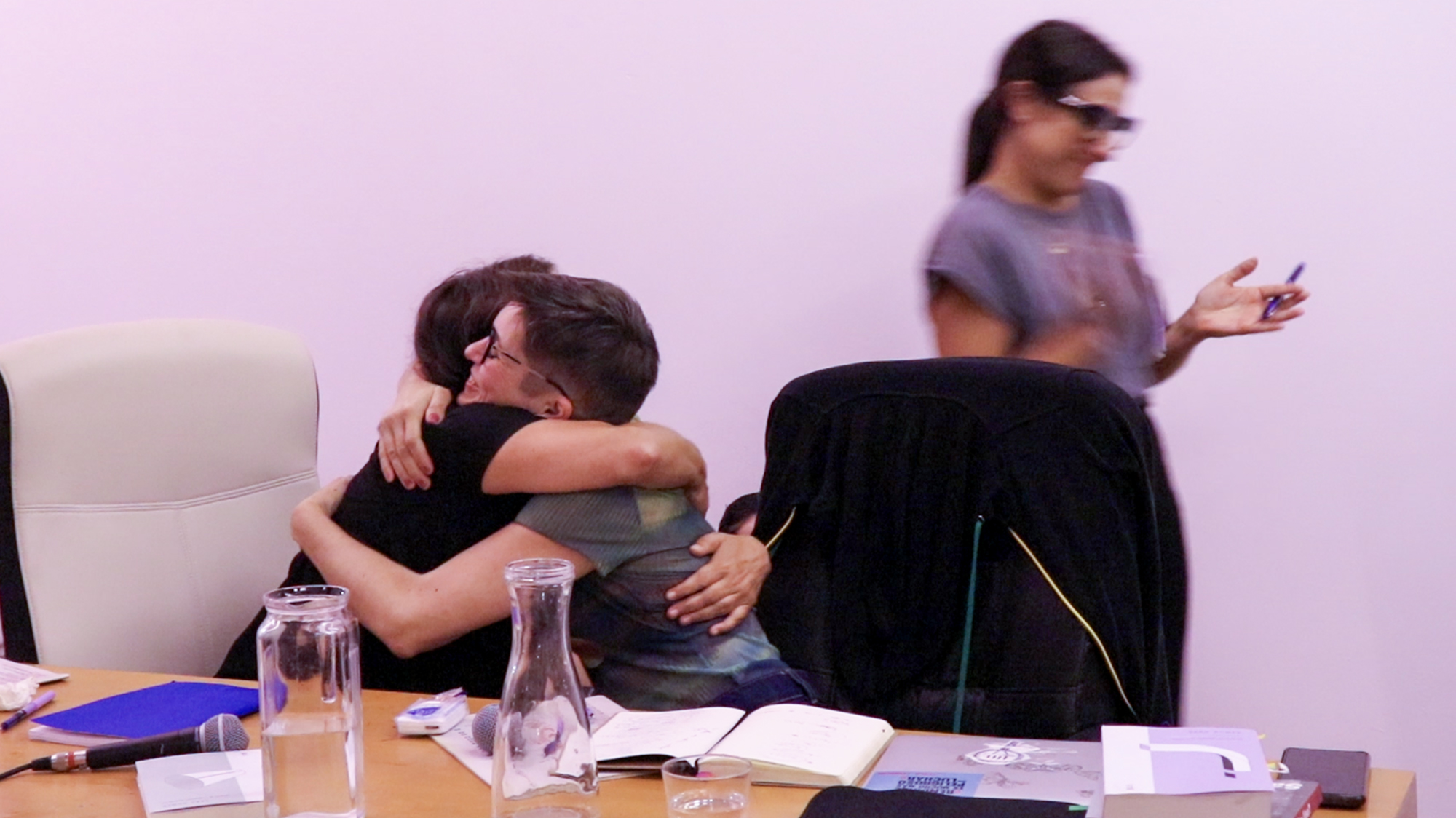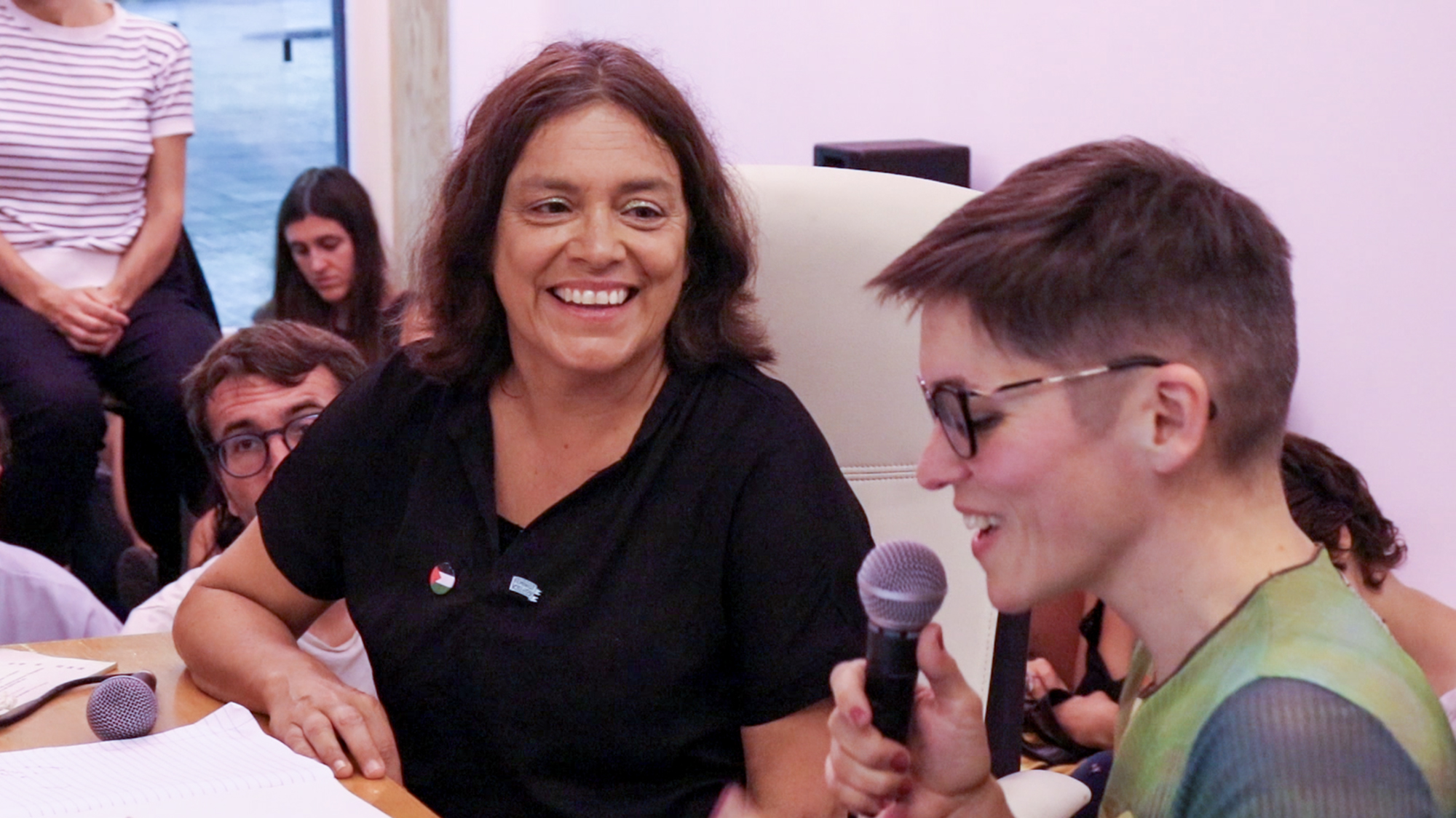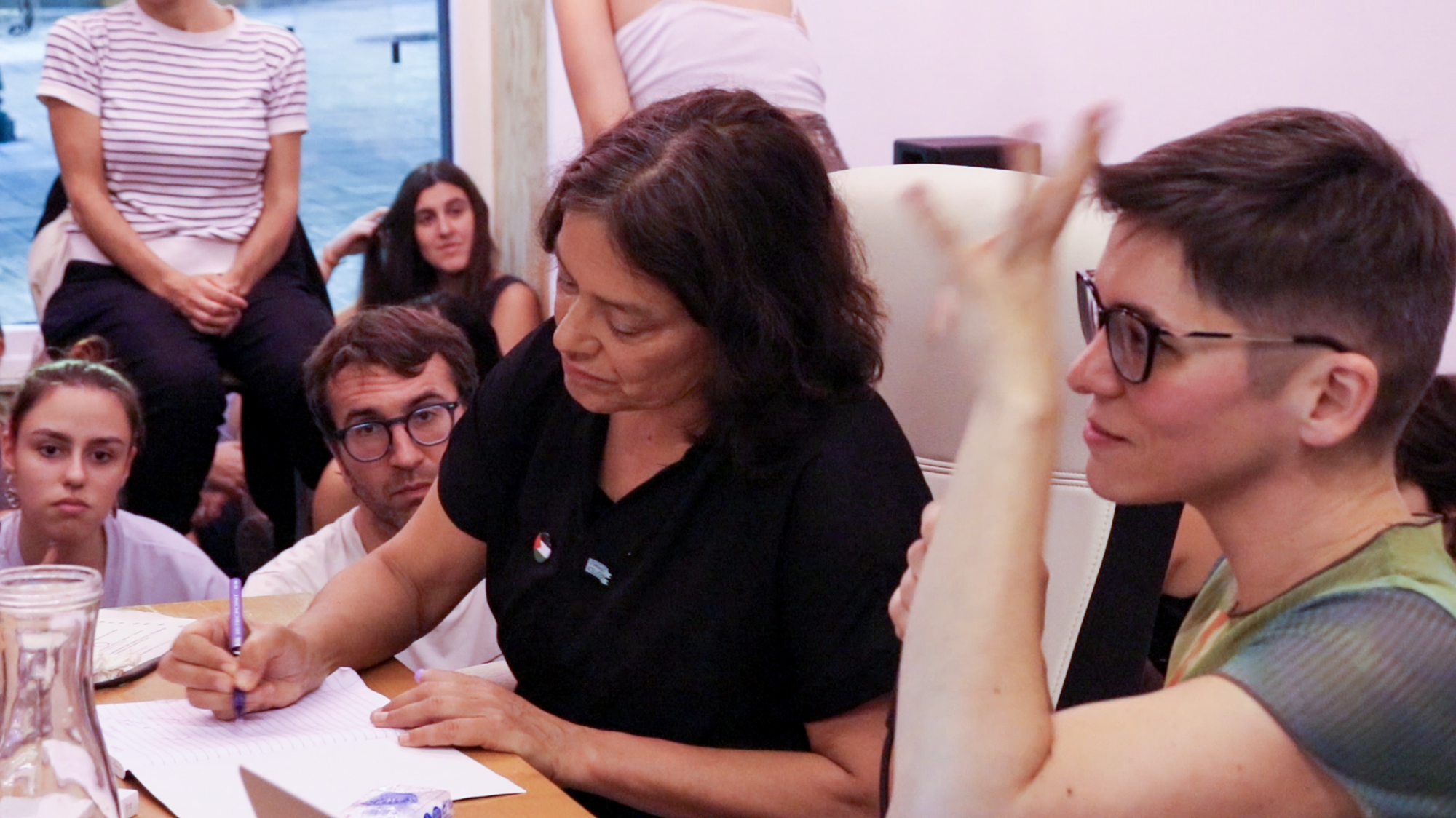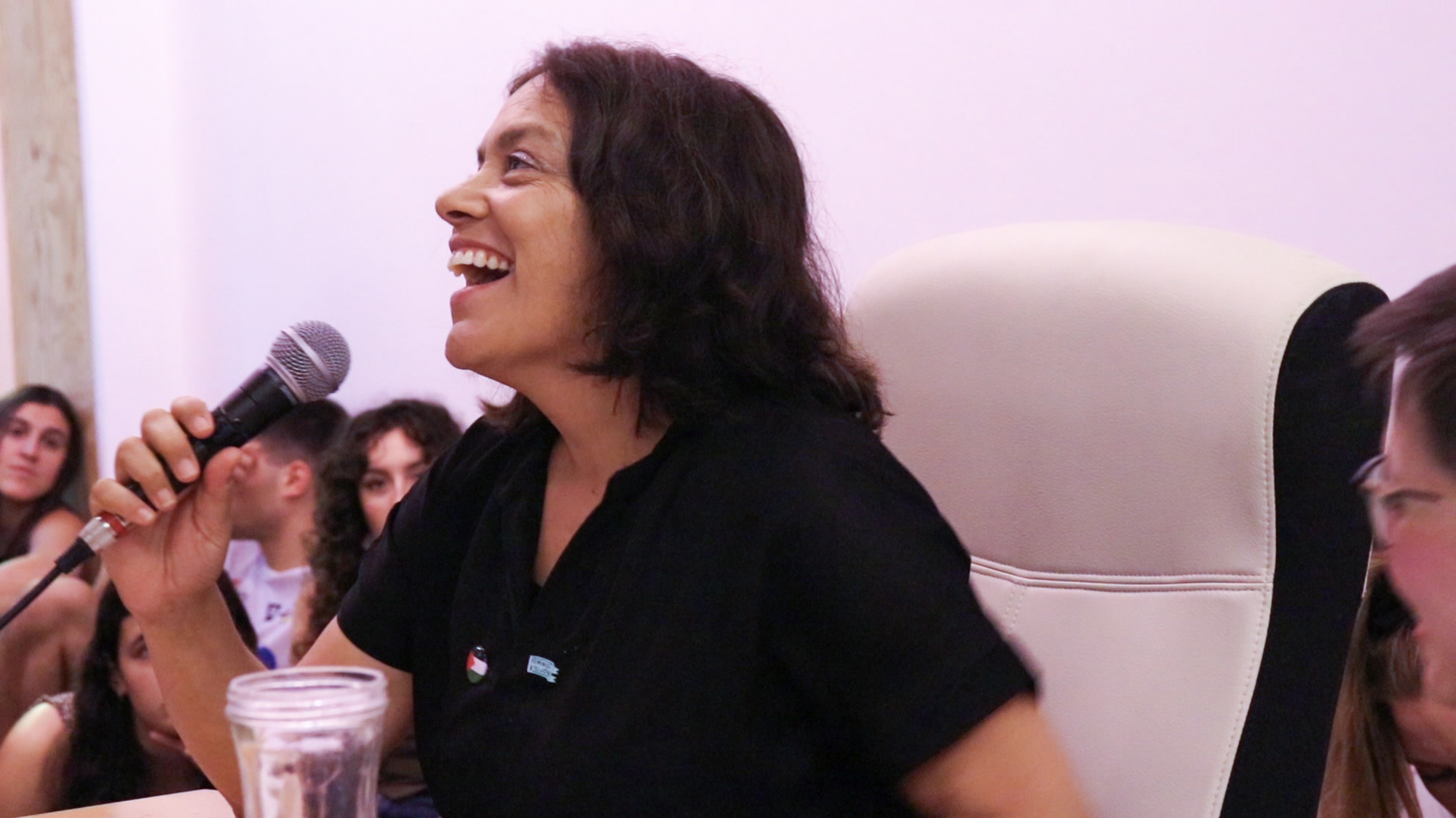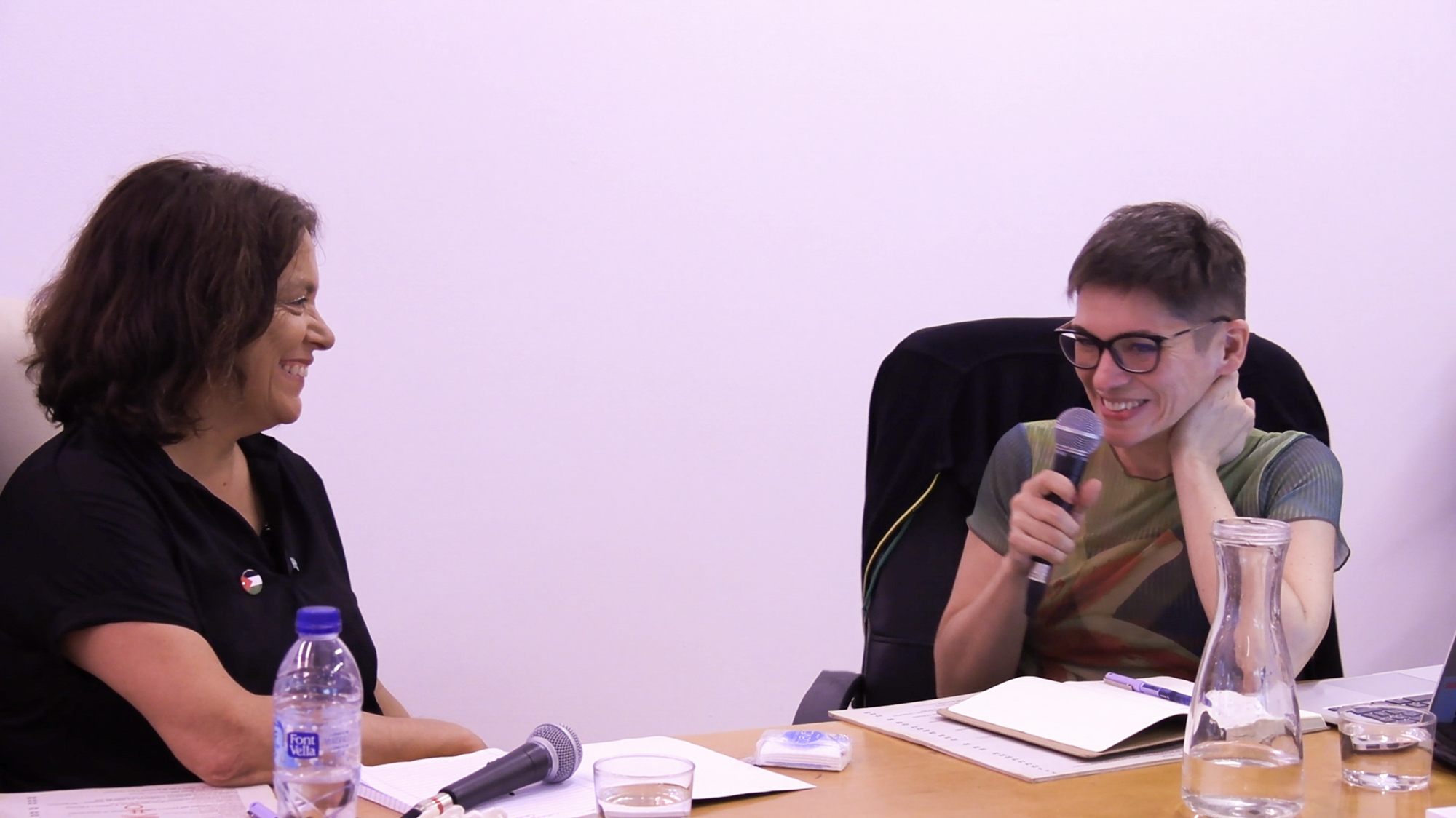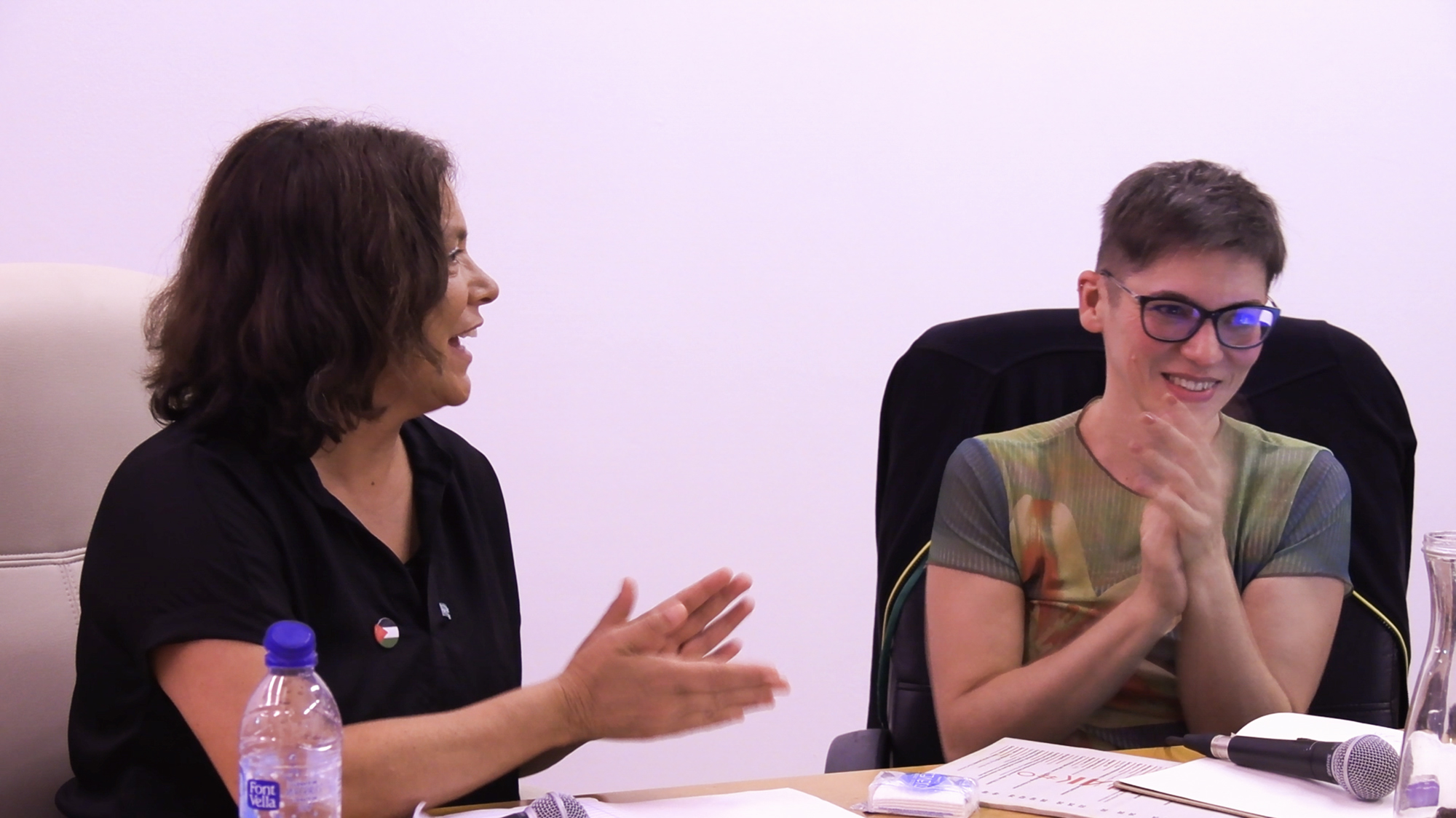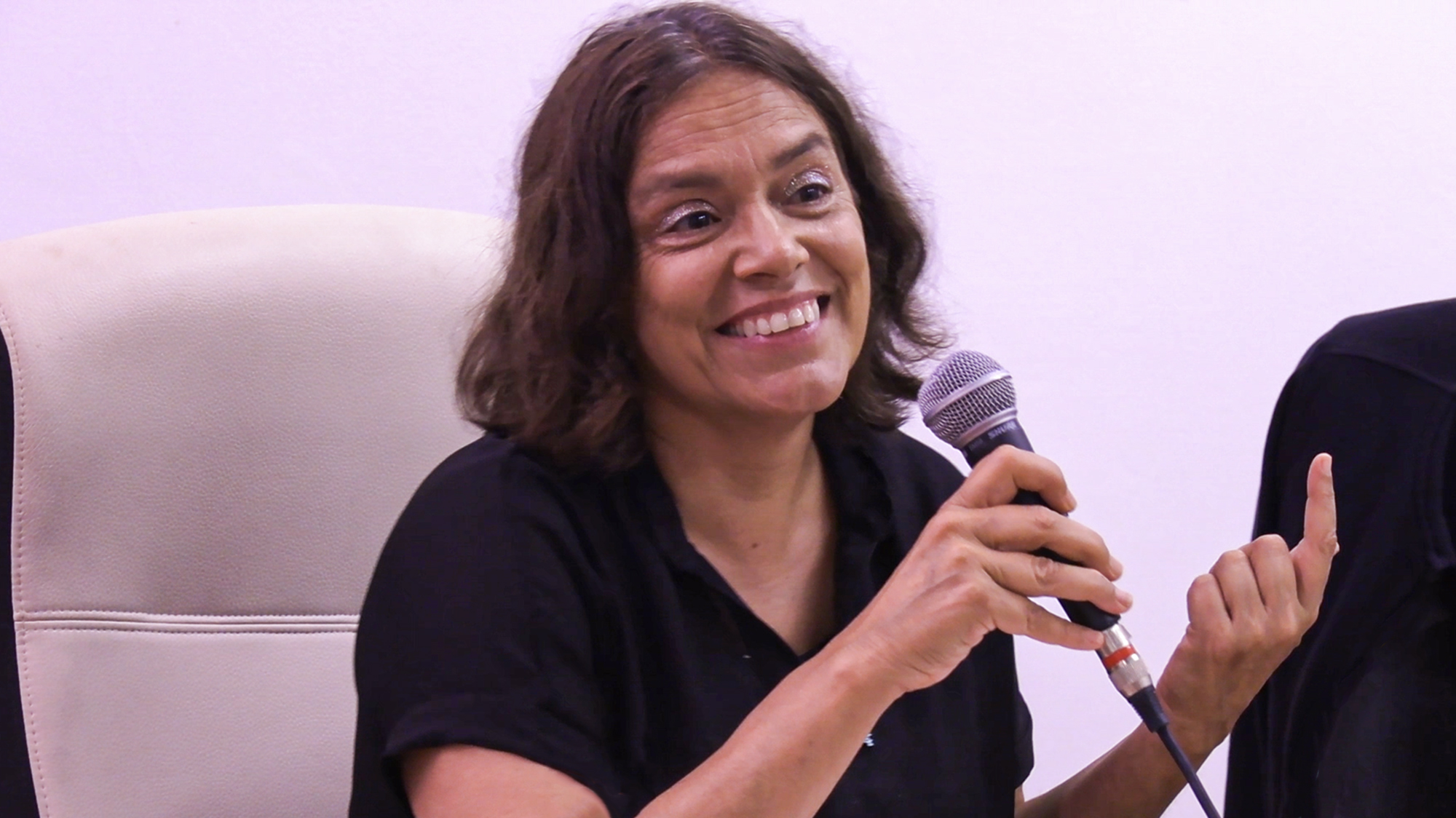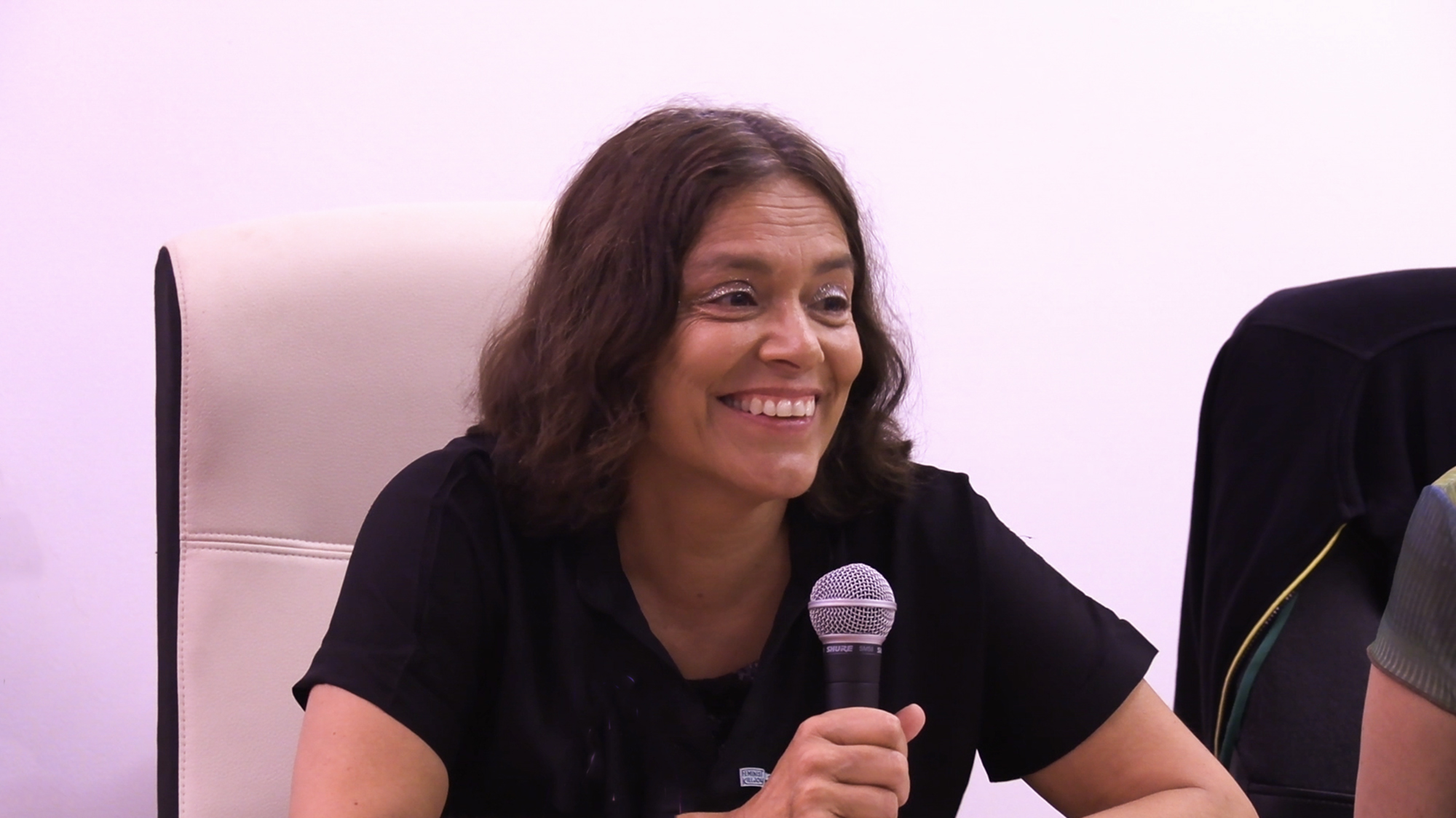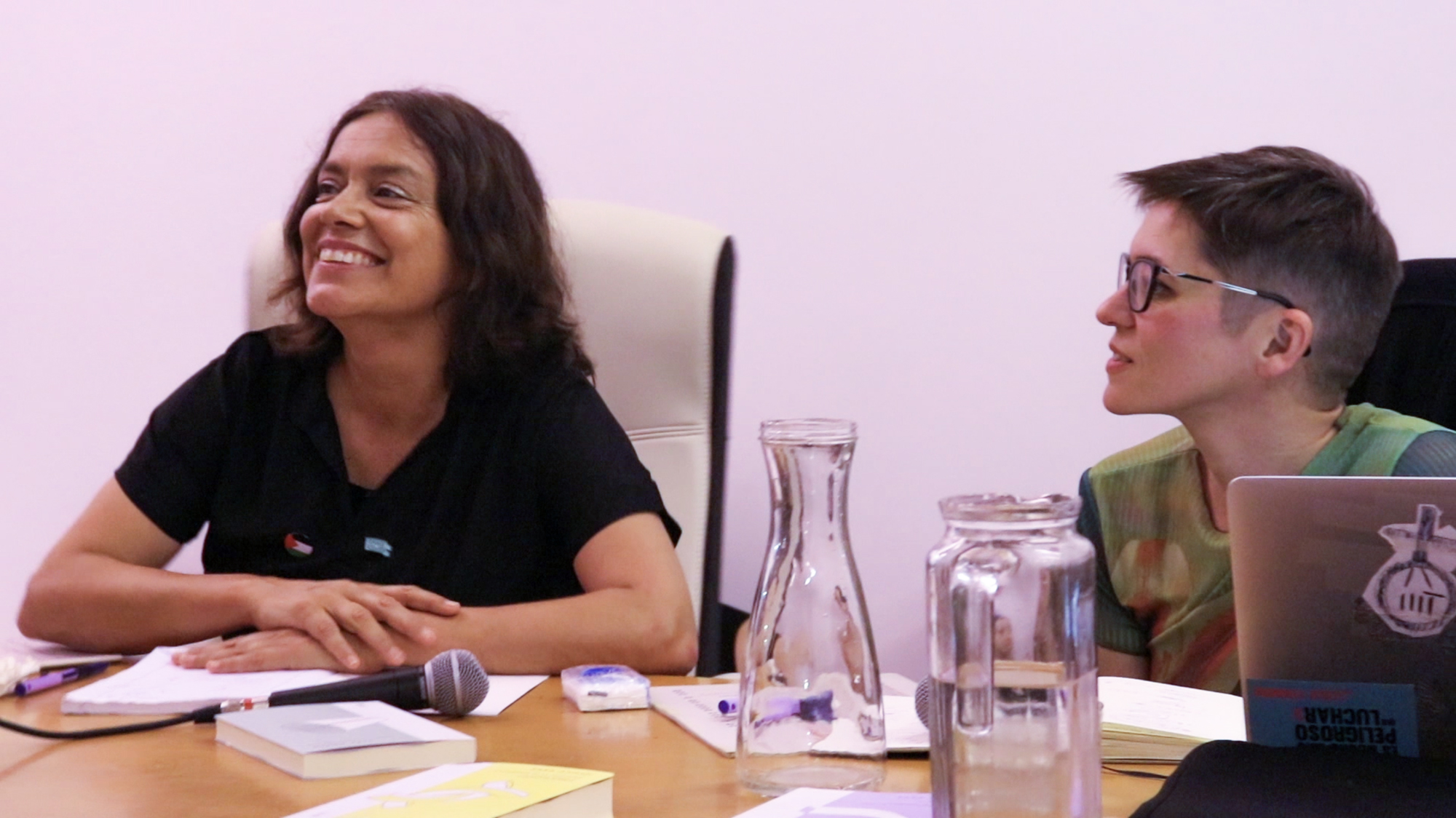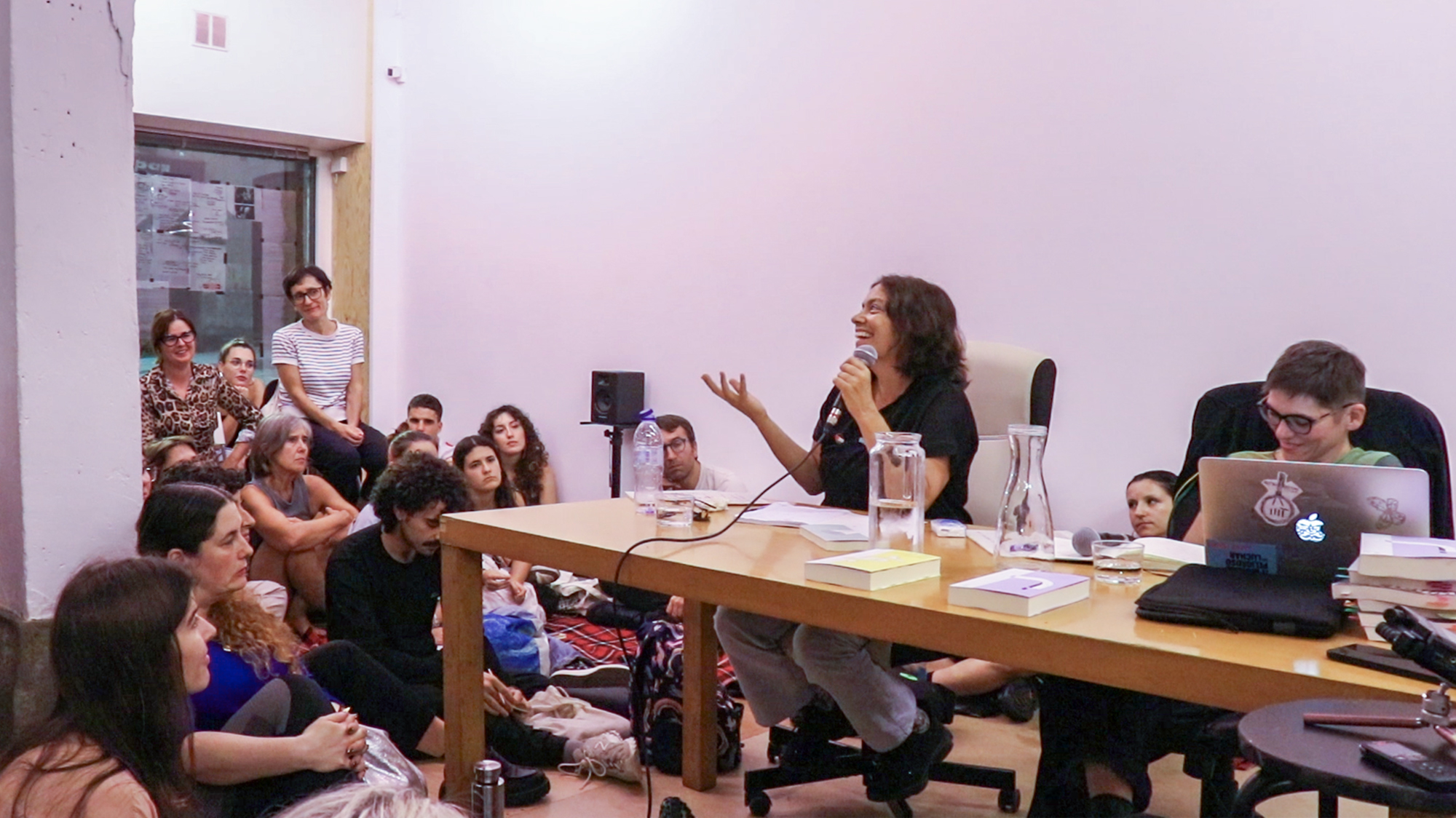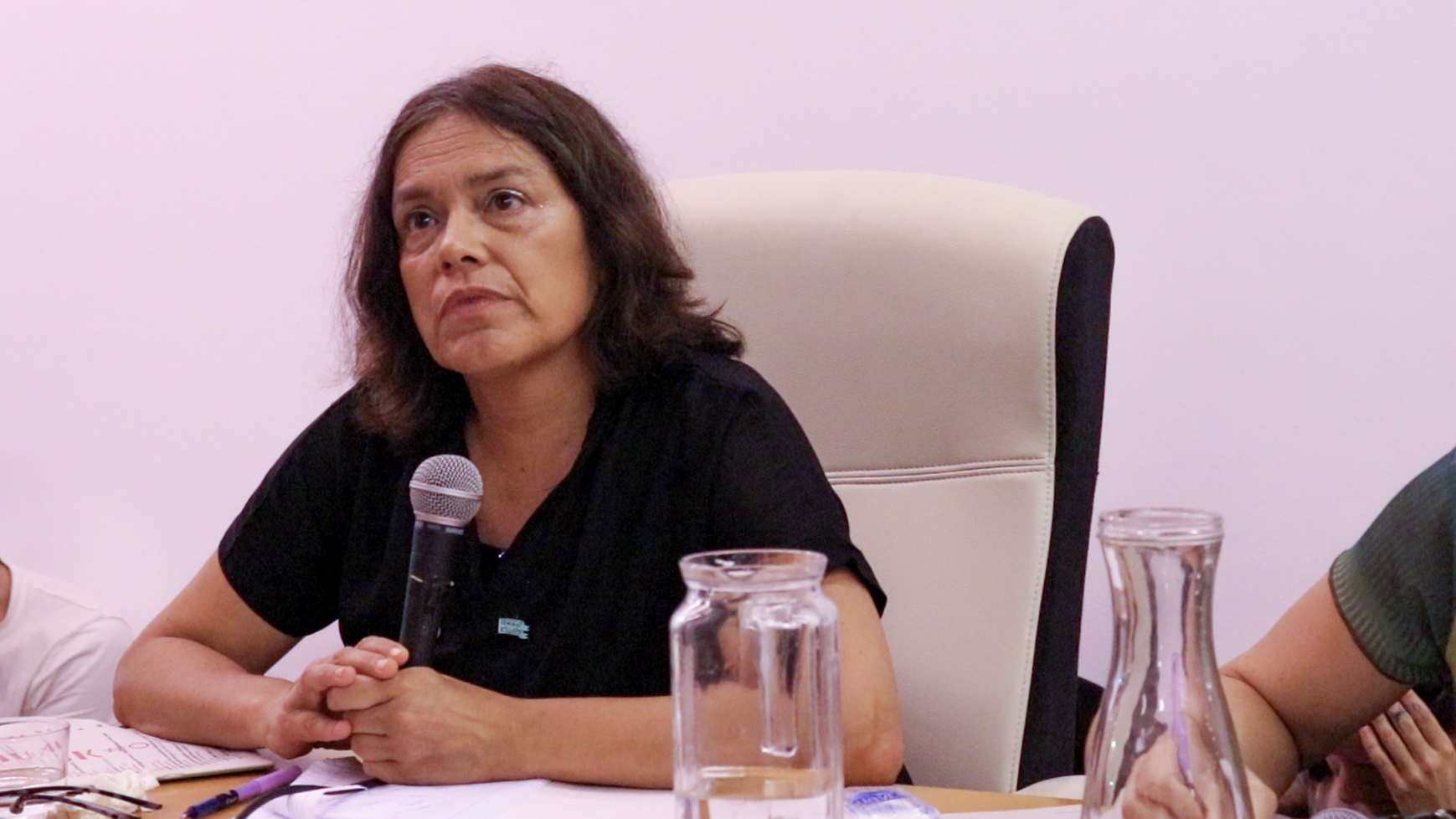Forms of formless knowledge
SARA AHMED. CONVERSATION WITH CARMEN ROMERO BACHILLER
by
Sara Ahmed in conversation with Carmen Romero Bachiller
Date: Monday, 14 October, 2024. 6:00 pm
Free entrance until the venue is full.
During the encounter, Sara Ahmed and Carmen Romero Bachiller will explore the work of the former, who is a specialist in queer theory, post-colonial critique and the theory of affects. Amongst other issues, they will discuss the tools from feminist theory that the person who coined the term “killjoy feminist” employs in her books to analyse the mechanisms of oppression and discrimination in everyday life and in institutional contexts. The two authors will focus on the importance of the words in Ahmed’s texts and on the genealogy of feminist writers in which her writing practice is rooted. Similarly, they will review the reception that the translations of her works into Spanish have received in the Spanish context, especially in the academic milieu.
Sara Ahmed is a feminist writer and an independent scholar who was born in England, but brought up in Australia. Her areas of study are focused on the intersection of feminist theories, queer politics, post-colonialism and anti-racist struggles, and her theoretical contributions are fundamental for understanding the global regimes of the production of the sensible. Until 2016 she was a Professor of Race and Cultural Studies and the director of the Centre for Feminist Research at Goldsmiths College, University of London, and also worked on gender studies at the University of Lancaster. Her books include Living a Feminist Life, The Cultural Politics of Emotion, Queer phenomenology: Orientations, Objects, Others and Differences that matter: Feminist theory and Postmodernism. Her website is www.saranahmed.com
Carmen Romero Bachiller holds a PhD in Sociology from the Universidad Complutense de Madrid (UCM) and is a lecturer in the department of Sociology: Methodology and Theory at the UCM. Feminist, femme dyke, mother, a member of the Punto Violeta Somosaguas and the Colectivo de Familias HD (Heterodisidentes). Her research covers bodies and practices as products of relational materiality, considering vulnerabilities and privileges from a feminist, queer intersectional and – of course – transinclusive perspective. A specialist in CTS/CTG (Science, Technology and Gender Studies), her current work is focused on exclusions and expulsions in access to the health system, questions of sexual and reproductive health, and issues related to the LGTBIAQ+ collective.
Activity organised in collaboration with Caja Negra Editora.

